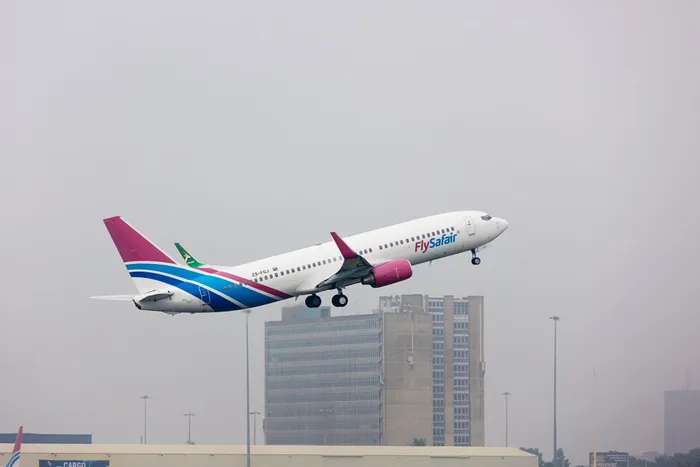Negotiations stall as FlySafair pilots reject salary offer amid tensions

FlySafair pilots reject a proposed salary increase as negotiations with management hit a stalemate, deepening tensions and posing the threat of strikes ahead.
Image: File
The airline’s final proposal—a 5.7% salary increase accompanied by additional compensation adjustments—was overwhelmingly turned down by the vast majority of Solidarity members, signalling a profound rift in their relationship with management.
Helgard Cronje, Deputy General Secretary of Solidarity, indicated that the rejection stemmed not merely from the inadequacy of the offer but also from a deeply strained rapport between the pilots and FlySafair's management team.
"The relationship is at an absolute low," Cronje remarked, encapsulating the frustration and disappointment felt by the pilots.
The roots of this discord trace back even further than the current salary dispute. Prior to negotiations, a contentious issue regarding a new shift roster system had already emerged—an arrangement that many pilots contend negatively affects their family lives.
This particular dispute could serve as fuel for future strikes, compounding the pressures on both the airline and its workforce once the salary-related strike concludes.
Further complicating matters, pilots have expressed significant concerns regarding FlySafair's new leave and day-off policies.
They argue these changes are detrimental to their overall quality of life and fail to meet even their minimum expectations.
This sense of inequity among pilots has intensified the urgency of their demands, making the negotiations increasingly contentious.
On Thursday, the two parties are set to finalise strike rules with the assistance of the Commission for Conciliation, Mediation and Arbitration (CCMA), paving the way for an impending strike should an agreement remain elusive.
According to insiders, the ripple effects of this situation may extend beyond the pilot negotiations, as FlySafair is concurrently engaged in separate salary discussions with its cabin crew, which also appears to be heading towards conflict.
Reflecting on the current state of affairs, Cronje lamented the failed labour relations framework. "These negotiations can be seen as a failure in labour relations,” he stated. “
The poor relationship between management and pilots has now led to the public bearing the consequences of unresolved workplace conflict."
The ramifications of this deadlock may not only affect employees but could also have a significant impact on FlySafair’s operations and its customers.
IOL
Related Topics: